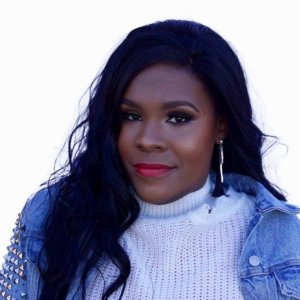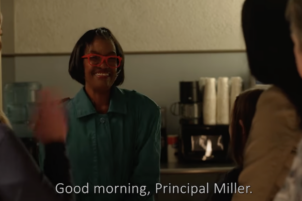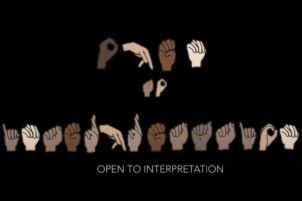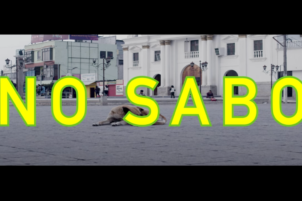 Filmmaker, screenwriter, activist, community organizer, volunteer, trailblazer. Tameka Citchen-Spruce (she/her) has accomplished a lot in her 15+ years of disability advocacy—and she shows no signs of slowing down.
Filmmaker, screenwriter, activist, community organizer, volunteer, trailblazer. Tameka Citchen-Spruce (she/her) has accomplished a lot in her 15+ years of disability advocacy—and she shows no signs of slowing down.
Born in Detroit and raised in Oak Park, MI, Tameka got into a car accident at six months old that left her paralyzed from the mid-chest down, also called a T2 spinal cord injury, which requires her to use a wheelchair. She relied on her community for support, which proved challenging as a Black and disabled woman in the Midwest.
“My parents raised me to be ‘durable’ and exposed me to everything, so I was never sheltered growing up,” Tameka said. “But, you know, it was hard for me to accept my disability.” She was the only Black girl and wheelchair user at school. She dealt with colorism, ableism, racism, and faced ignorance from some church members who “eagerly pray[ed] for God to heal [her].”
It wasn’t until Tameka participated in—and won—Ms. Wheelchair MI 2006 that she took charge of her story.
“This was the first time I had ever seen women in wheelchairs, which I never saw growing up. It was a great experience being part of a tribe and seeing what my life could be.” Because of the power of her community, the lack of representation she saw growing up, and her love for the arts, Tameka started making films.
When I asked where she draws her inspiration from, Tameka pointed to social issues. Her short Justifiable Homicide is filmed from the perspective of a young Black man who experiences racial profiling and bias. “Trayvon Martin and Michael Brown and other police killings were happening at that time [when I created Justifiable Homicide]. My brother had experienced it, too.”
She wants to create films that authentically reflect her and other people’s experiences, specifically people from the BIPOC and disability communities. Her documentary My Girl Story manifests that desire, showing what it’s like to be a disabled Black girl navigating school accommodations, health challenges, and bullying, on top of being a teenager.
Tameka’s lived experience is key to her storytelling style. “I would say that I can draw deep emotion and be real in the raw sense. Because of that, [viewers of any background] can feel and connect with my characters, their life, and what they experienced.”
Through her art, Tameka intends to show the humanity of people, the good and the bad, because “as a society, we tend to otherize people that we personally have no interaction with.”
We talked about the journey of self-love and self-acceptance, laughing at how difficult it can be with little to no media representation. “Society does not have high expectations for people and kids with disabilities. Nobody looked at me and said ‘Oh, you can be a scientist or something!’” Tameka said. “I could tell that my teachers treated me and my [non-disabled] peers differently.”
As a result, people with disabilities internalize harmful messages like “you’re not good enough” or “you’re not pretty enough.” Through therapy, Tameka explored the root of her feelings and learned to accept herself. She also met her husband, found a supportive church, and connected with friends, colleagues, and mentors who became part of her village. One of them is comedian and producer W. Kamau Bell, who Tameka credits for his wonderful mentorship.
Tameka has two exciting projects in development. The first is an unscripted reality TV show featuring Black and Brown women with physical disabilities “taking the city by storm as bad bosses.” She connected with changemakers in her community who shared her vision, wanting to tell empowering stories of disabled BIPOC folks on television.
Her second project is a documentary centering around six stories of Black, autistic individuals, told from their viewpoints. Many stories about autistic people tend to be from a white or singular perspective, and Tameka intends to diversify that narrative.
After hearing about her plans, I asked how she manages to balance all her responsibilities. Tameka is not only an award-winning filmmaker, but also a dedicated Co-Director of LEAD at the Michigan Disability Rights Coalition, a volunteer at Warriors on Wheels of Metro Detroit, and a mother of two children.
“I love to do it, and that’s my job,” Tameka said laughing. “I have love for the community, for people, and I don’t think it’s fair for them to experience discrimination, like with affordable housing and getting stopped by the police. That makes me really angry.
“We are fighting against injustice, we can make the changes we want to see in society, and we can also empower people to find a purpose.”







